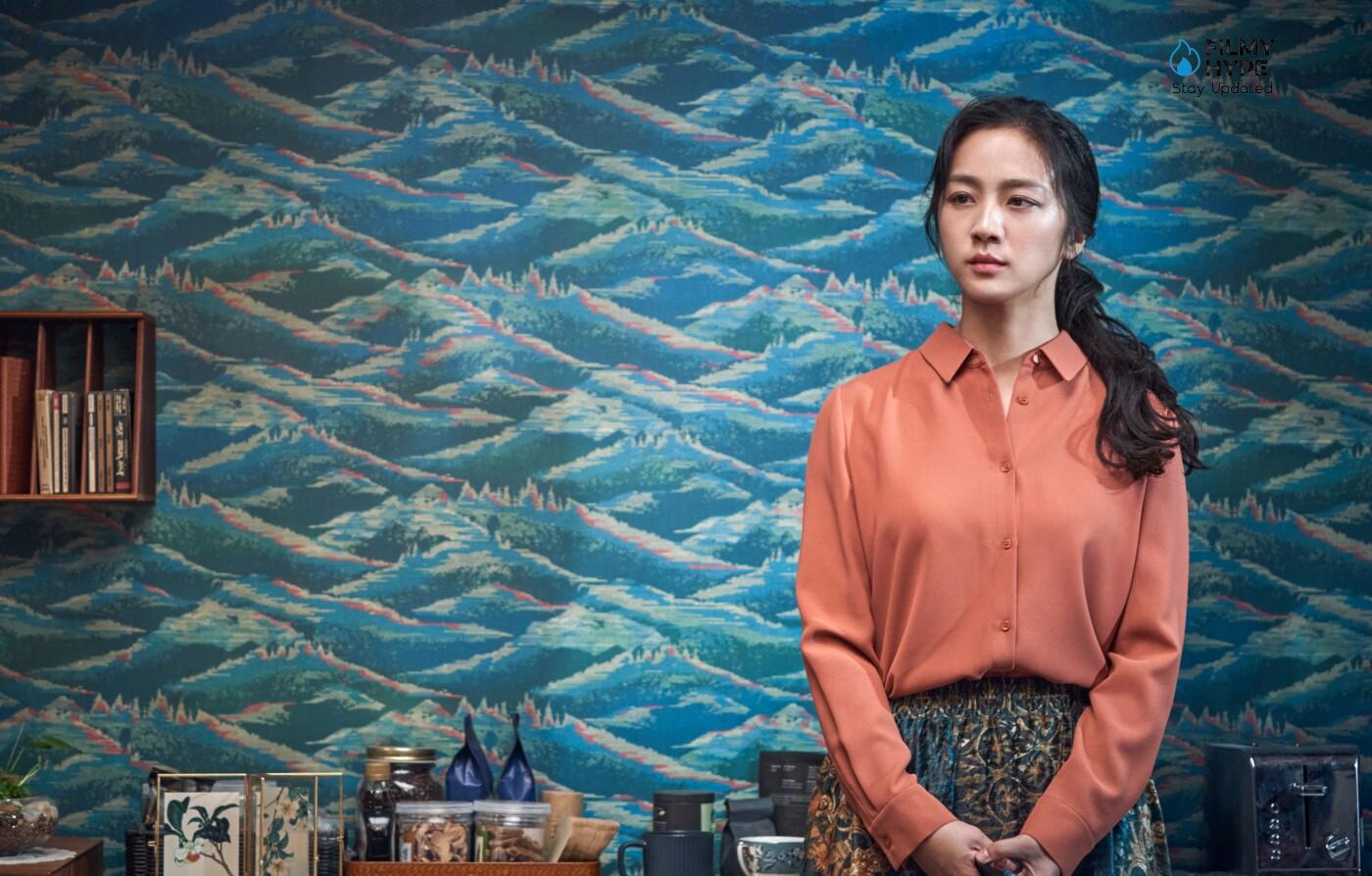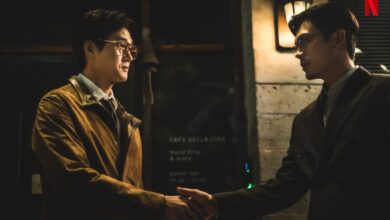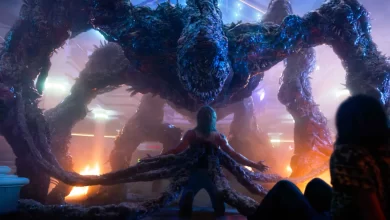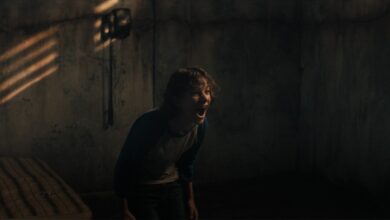Decision to Leave Ending Explained: Who is the Murderer?
Decision to Leave, Park Chan-wook’s thriller with a romantic air, finally arrives in Spanish theaters this January 18. A twisted, elegant and romantic crime film where a murder investigation is clouded by the feelings that arise between the investigator and the accused. An absorbing psychological thriller that makes us doubt what we are seeing all the time, continually changing the perspective, finally letting its characters take the initiative and guide us through their actions. And it’s not until the end that we manage to put the whole story together and understand that Decision to leave goes much further than finding a murderer. It is a film that makes us rethink how we see the world through our emotions, fooling our senses to do so. From here we will analyze Decision to leave and explain its ending, so there will be SPOILERS for the film.

An exciting feature film that pleasantly surprised us like a real stroke of lightning, capable of only apparently moving away from the obsessions and typical elements of the South Korean master to stage a neo-noir with very strong sentimental hues and an ambiguous interpretation. In our explanation of the ending of Decision To Leave, we will pick up the threads of Park Chan-wook’s intricate and psychological sentimental thriller to analyze the themes, details, and inner impulses of its ambiguous protagonists to reach an emblematic conclusion: the last film of the master of Asian cinema (already nominated for a Golden Globe and a Bafta as the international film of the year) is simply among the most unmissable titles of these first months of 2023.
Decision to Leave: Plot Summary
Before analyzing the themes and details of the intricate plot of Decision To Leave, a necessary premise: the new masterpiece written and directed by Park Chan-wook is a deliberately ambiguous sentimental thriller, both in the unfolding of events and in the psychological excavation of its two protagonists. Ours will be just one of many valid readings of the meaning behind the sad ending of the film. It all starts with a South Korean detective named Jang Hae-Joon (Park Hae-il) who falls in love with a mysterious Chinese woman named Seo-rae (Tang Wei), the wife of a man of Korean nationality who died after mysteriously falling from a cliff. Of course, Hae-Joon is given the case, as well as interrogating his Chinese wife; she, the latter, is available for the initial investigation, however, she shows no grief over her husband’s death, but instead lets out a small laugh when asked about the man who fell tragically. What is he hiding?
The more time passes, the more the investigation deteriorates the psychophysical state of Hae-Joon, who progressively more and more obsessed with the widow; as the analysis of the man’s disappearance continues, the detective notes how more and more shocking clues are discovered that can trace the hand of the man’s murder to that of Seo-are; Wanted for murder in China and almost forcibly taken to Korea as a husband, Seo-are even has her ex-life partner’s initials tattooed on her. More and more attracted by the life and the enigma of that woman, Hae-Joon listens to the ambiguous exchange of Seo-are with a cat to which he says: “Bring me the heart of that kind detective”. So what game is that widow playing? Was she the one who killed her husband or is she trying to exonerate herself and thus get closer to Hae-Joo n’ heart, hopelessly more and more attracted to her?
Decision to Leave Ending Explained: Who is the Murderer? A Question of Power Games
Decision to leave plays all the time with our senses. Because the point of view is that of the policeman, and he is blinded by his emotions. What he sees with his eyes is clouded and what he hears with his ears is distorted. Without even being aware, he is guided by what he feels. Which turns his perspective into a delusion. Despite this, at the end of Decision to Leave, we can reconstruct the story, thanks to the fact that it is Seo-rae, who tells us the whole truth in that meeting on the mountain. Seo-rae did kill her first husband. She planned it all to look like an accident, but she discreetly climbed the mountain and ended up throwing him off the top. Her motive is that he blackmailed her into deporting her, manipulated her because he had power over her, and it was the way Seo-rae achieved her freedom.
Regarding the death of her second husband, both the dynamics and the motives change. Here she does not kill him directly, although she does cause another to kill him. Seo-rae’s new husband, Ho-shi, is killed by a thug named Slappy, who seeks revenge for what happened to his mother. But it was precisely Seo-rae who was to blame for the death of Slappy’s mother, whom she kills by poisoning her after posing as her nurse. Seo-Rae influenced this new murder for a reason, to meet Hae-Joon again. She knows that he is the one who will take the case and thus they will have a new opportunity to meet. She even sets him up for the crime, even though she did not commit the murder. She removes any traces of blood around the corpse so that Hae-Joon finds it all pristine when she arrives at the pool (she has previously confessed to him how disgusting violent crime scenes are to him). Therefore, if the first murder is done to win her freedom, in the second it is love that guides her. He knows that this is the only way to get close to Hae-joon again, who is too honorable to leave her wife and run away with her.
The second act opens about a year after the aforementioned events when Hae-Joon meets Sao-Rae again at the fish market in the city of Ipo. He was accompanied by his wife, arm in arm with her second husband, Ho-shin. The latter, a successful trading analyst, is suddenly found dead in his swimming pool with thirteen stab marks; called to investigate the case, Hae-Joon has no doubts: it was Sao-rae who killed the man, in a perverse game of power and seduction for which the Chinese woman returned to Korea after a year to fulfill the perfect crime and thus attract the attention of the person he loved. The detective then preemptively arrests the woman, but on a lie detector, she admits that she didn’t kill her second husband Ho-shin.
But then, who did it? It is later revealed that a man named Chul-sung killed Ho-shin, but this was because the woman had secretly killed her mother, for a very specific reason. Sao-Rae reveals to the detective that she did it because she knew her second husband reinvested Chul-sung’s mother’s money and lost it. Consequently, if she secretly drugged her mother and killed her, Chul-sung would blame Ho-shin and kill her. Eventually, Ho-shin also discovers the recording of her on his wife’s phone in which Hae-Joon says, “I love you“. With the fear of Seo-Rae being captured, therefore, she must get rid of the evidence as soon as possible; a proof of love towards his wife which however is discounted with her violent killing.
The Closer You Look, The More You Risk Missing Out
The ambiguous relationship between the two grows over time, with the detective who investigates and spies on Seo-rae’s present and past life the more he falls madly in love with her. However, the Chinese woman, who was working in the meantime as a nurse and carer for some elderly women who were left alone, didn’t take long for the detective to discover her plan; while Hae-Joon was looking for clues in the house of one of the elderly women with whom the enigmatic woman worked, she makes a strange discovery: the pedometer on her granny’s cell phone showed 138 steps on the day of the man’s tragic death Korean; a pure coincidence? After climbing the mountain where the accident had occurred days before, the detective realizes that it was exactly 138 steps from the old woman’s house to the place of the possible crime.
Devastated by pain and shocked by the ordeal, Hae-Joon confronts the woman, heartbroken and at the same time deeply in love with her. To exonerate her despite her guilt, the detective orders her to take that cell phone and throw it into the sea, in such a deep place where no one could ever find it and discover her evidence. In a nutshell, both the policeman and the mystery woman decide tacitly and by strong mutual feeling, to taint the evidence, thus leaving Sao-rae to emerge unscathed. And it is with this great twist that the first, great narrative act of Decision To Leave ideally closes.
What Happens in The Ending of the Decision To Leave?
So here we are at the final act of Decision To Leave, where Hae-Joon, shocked by the story behind the killing of Ho-shin, begs Sao-Rae not to flee and to explain to him why he had implemented such a well-thought-out plan. But the woman, without wanting to listen to any reason, flees towards the beach, determined not to be captured not only for the murder of Chul-sung’s mother but also because she knew that her disappearance would have prevented Hae-Joon from being prosecuted for the evidence pollution of the previous year’s case. The inspector was once again holding the old cell phone that the woman hadn’t gotten rid of, an electronic device that on her return to Korea she had given to the detective in love as a sign of mutual feeling.
Arrived on the beach, Sao-Rae digs a deep hole in the sand, not far from the shoreline, and enters it; a hole that fills more and more with seawater as the minutes go by, eventually drowning her and covering her body with a thick layer of wet sand. When He-Joon arrives on the beach, he is unable to find the woman he loved, unaware that Sao-Rae had made the ultimate sacrifice so that neither of them suffers the painful consequences of eventual incarceration. Knowing then that the truth would sooner or later come out and that it would also mean that Hae-Joon would be dragged into the investigation for his attempt to destroy the evidence of the past, Sao-rae takes her own life.
The Importance of Small Details:
Decision to leave is a film full of symbolism and small details, which may go unnoticed the first time we see it but become important when reviewed.
Vision and close-up eyes
Many elements refer directly to “vision.” Like the use of binoculars, the zoom and there are even fixed planes focusing directly on the eyes. The perception of the film is subjective and the view is altered by emotions. The important thing is not what is seen, but who sees it, because that changes the meaning of everything. Hae-Joon is aware that his vision is affected by what he feels, which is why he always carries a liquid with him to remove, according to him, the haze from his eyes. A haze that prevents you from having a clear view of what is happening. Seo-Rae has affected her investigation, and her love for her is that mist that she can’t shake off.
The Translator and The Language
Although the sense of sight is affected, it is similar to hearing. This is a detail that is lost by not knowing the original language of ‘Decision to leave’, but in Korean, it is more accentuated. Seo-rae speaks an overly formal Korean, one that she has learned by reading, in the same way, that no one would have learned Spanish through Don Quixote. Her way of communicating is different and understandable, but at the same time unique. That makes her communication with her different, even the meaning of her words changes when you use them. Another way of saying that the senses are again subjective. And if you couldn’t trust what you saw, neither could you trust what you heard.
The Blood
Unlike other Park Chan-wook movies like Old Boy, Decision to Leave is extremely neat. And it makes sense if we take into account that Hae-Joon does not like blood or violence. After all, it is his perspective that we see. There are two key moments where we appreciate that disgust for blood. One is when Hae-joon puts a chain mail on his hand before facing the criminal, so he doesn’t hurt his knuckles. And another is the crime scene where Seo-rae cleans up so that he can investigate at ease, even moving the corpse to remove any traces of blood that might displease the protagonist.
The Pockets
Hae-Joon is a meticulous man. He always carries small pockets in his clothes where he keeps everything carefully. Seo-Rae seems to know exactly what she hides in each of them, and in the scene on the mountain, she begins to manipulate them as if she had put the stuff there herself. A way of saying that she knows him and is in tune with him. Another curious detail about the pockets is what Hae-joon keeps in them. Despite being a policeman, we never see him as a gun, but in the different compartments, we can find tissues or cocoa. He is not only meticulous but also neat and even generous, prepared for what people may need. Never have pockets described a character so much.





